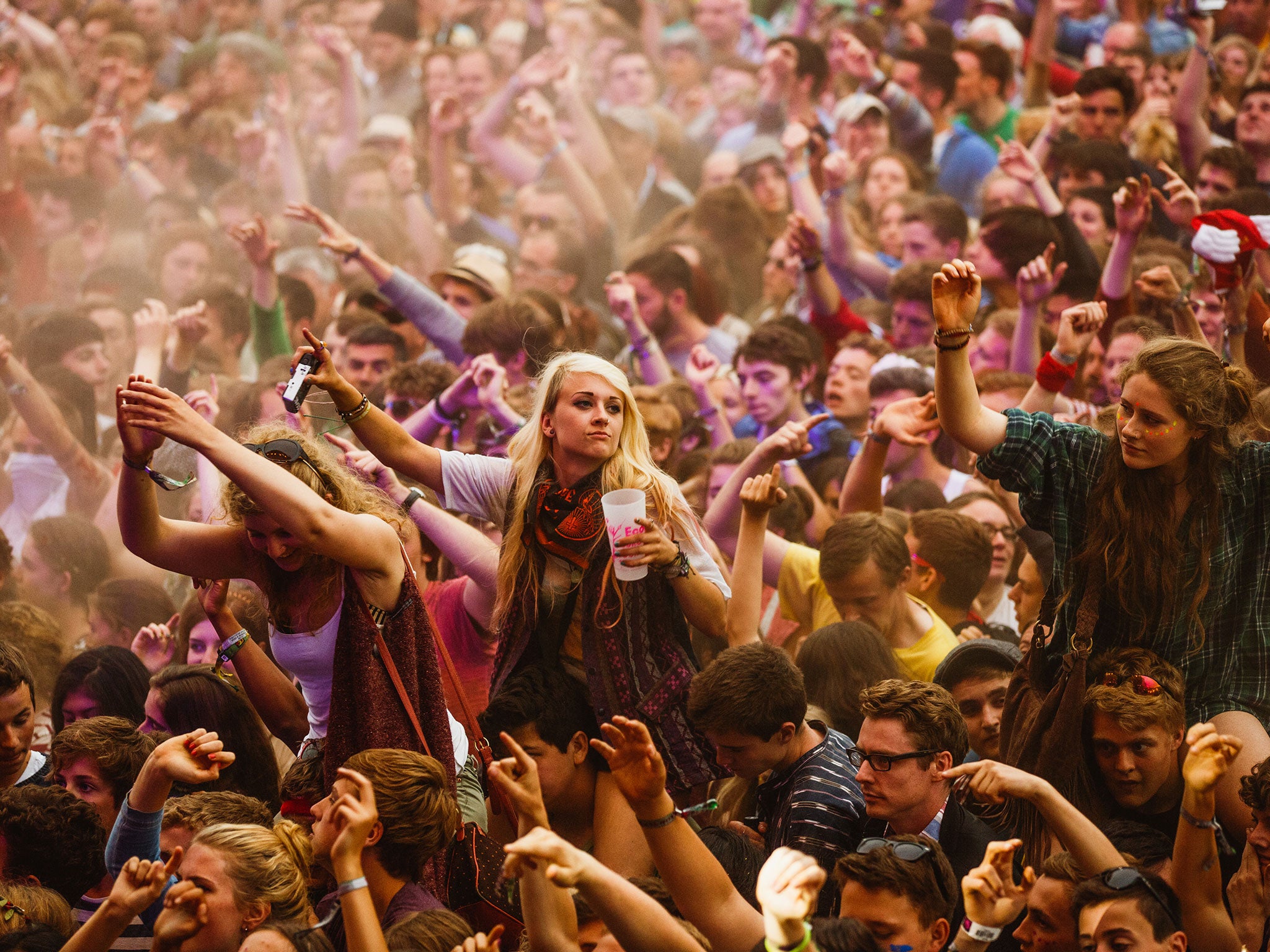Latitude 2014: Redefining the music festival
Latitude, now in its ninth year, continues to push the boundaries and be a source of inspiration

Your support helps us to tell the story
From reproductive rights to climate change to Big Tech, The Independent is on the ground when the story is developing. Whether it's investigating the financials of Elon Musk's pro-Trump PAC or producing our latest documentary, 'The A Word', which shines a light on the American women fighting for reproductive rights, we know how important it is to parse out the facts from the messaging.
At such a critical moment in US history, we need reporters on the ground. Your donation allows us to keep sending journalists to speak to both sides of the story.
The Independent is trusted by Americans across the entire political spectrum. And unlike many other quality news outlets, we choose not to lock Americans out of our reporting and analysis with paywalls. We believe quality journalism should be available to everyone, paid for by those who can afford it.
Your support makes all the difference.“Not just a music festival” is how Latitude has been billed since its inception in 2006. After all, across its 17 stages, this year you’ll find not only a top drawer music line-up which includes Damon Albarn, and The Black Keys, but theatre, literature, film, and a comedy bill to rival the Edinburgh Fringe.
And on the Waterfront Stage, overlooking the lake, you’ll find the House Gospel Choir, highlights from the musical Once, and dance curated by Sadler’s Wells – Latitude’s collaborative partner of seven years – including shows by the English National Ballet and choreographer Wayne McGregor.
Festival director Melvin Benn set up Latitude with the intention of redefining what a music festival could be and to create the kind of event that would appeal to Hay-on-Wye- and Edinburgh-goers. It’s hard to imagine that, when Benn initially programmed opera and ballet alongside rock and pop acts, he was met with derision by naysayers who thought the concept would never catch on.
Now, in its beautiful lakeside location in Henham Park, Suffolk, it has become perfectly normal to catch a renowned classical act – piano virtuoso Lang Lang’s performance drew a huge crowd in 2012 – and then cross over the bridge to see a rock act.
When Latitude started, it welcomed 20,000 festival-goers. Now it’s one of the most popular of the season with a capacity of 35,000.
Literature and poetry are still at the heart of the festival. It’s all in the layout of the site: as you walk over from the campsite, the first thing you come across is the Waterfront Stage, and, when you cross over the bridge, it’s not music stages that you first see, it’s the literature and poetry tents. Music may be secondary to the other art forms in the eyes of the festival’s director, but you’d never know from the bill.
Damon Albarn is playing an exclusive UK summer-festival performance here, and the five music stages give a platform to a wide mix of genres from R&B and pop (Kelis, Clean Bandit, Haim), to indie-rock (Editors, Two Door Cinema Club), folk (First Aid Kit), and synth-pop (East India Youth, Future Islands).
Now in its ninth year, Latitude remains queen of the arts festivals – and its winning formula has paved the way for other festivals to step beyond the traditional music-offerings. It’s a sure way of attracting culture-seeking families, and it helps to stave off criticisms of boring line-ups that have befallen more traditional music festivals who have relied on the same pool of rock and pop acts as headliners in recent years. With the sheer number of festivals taking place in the UK annually, festival-goers want more than just watching some bands in a field, as is shown by the continuing rise of boutique events.
That Latitude’s success set a template for other festivals to showcase many art forms is shown by the events that have sprung up since its inception. Two of the newest additions where arts are at the forefront are award-winning: Wilderness, which began in 2011, and Festival No 6, which followed in 2012.
Wilderness has a discerning music programme including Metronomy, London Grammar and Burt Bacharach, theatre, talks and debates and banquets prepared by famous chefs.
Each year it fuses music genres, taking a pop act and reinventing their live show with an orchestra – this year Jessie Ware will be backed by the Wilderness Orchestra.
Festival No 6 has fast built a reputation for a line-up mixing hotly tipped acts of the moment with legends. Pet Shop Boys, Beck and London Grammar headline this year, but it’s the variety of the arts and culture line-up that attracts so many, with comedy and literary talks including Gavin Turk and Charlie Higson, and its very own composer in residence, Joe Duddell.
Having variety in the line-up is the key to a festival’s success. It’s the future of festivals.
Join our commenting forum
Join thought-provoking conversations, follow other Independent readers and see their replies
Comments